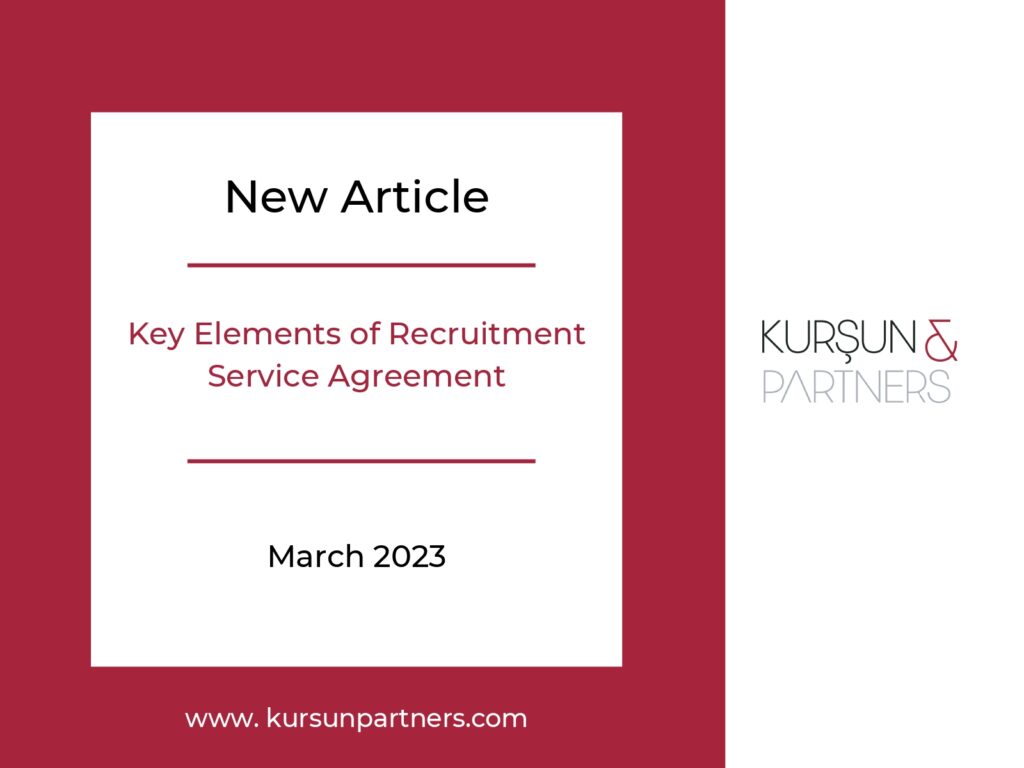
Recruiting the right candidate for a job position is a significant challenge for many companies. This is especially true when there are no internal human resources department in a company. Therefore, many companies opt to outsource their recruitment process to recruitment agencies. However, it is essential to have a clear and concise recruitment service agreement to ensure that the outsourcing process is smooth and efficient.
- Agreement Structure
Companies often engage recruitment agencies to fill multiple positions and rely on them for future hires. Signing individual agreements for each service request can be tedious in practice. To streamline the recruitment process, a general framework contract with special conditions based on specific service demands should be agreed upon by both parties.
- Job Description and Requirements
One of the essential topics to be considered in a recruitment service agreement is the job description and requirements. It is imperative to have a clear definition of the job position, its duties, responsibilities, and qualifications before starting the recruitment process. The recruitment agency should have access to all the necessary information about the position, including the job description, job requirements, minimum qualifications, experience, and skills required for the job. The recruitment agency should also be aware of any specific requirements such as certifications, licenses, or language proficiency. The recruitment service agreement should clearly state that the recruitment agency will only consider candidates who meet the minimum qualifications and requirements.
- Recruitment Process
Another vital topic to consider in a recruitment service agreement is the recruitment process. The recruitment agency should provide a detailed outline of their recruitment process, including sourcing strategies, candidate screening, and selection criteria. The agreement should also specify the timeline for the recruitment process, including the duration of different stages such as resume screening, interviews, and reference checks until the presentation of candidates to the companies. On the other hand, companies may request that recruitment firms conduct an attentive elimination process with respect to values such as non-discrimination and equality.
In addition, it is essential to outline the recruitment agency’s communication process, including who the client’s point of contact will be, how often they will receive progress updates, and how the agency will handle any questions or concerns.
- Fees and Payment Terms
The fees and payment terms are also essential topics to be considered in a recruitment service agreement. The agreement should clearly outline the recruitment agency’s fees, including any additional costs such as advertising or background checks. The payment terms should also be specified, including the payment schedule, payment method, and any penalties for late payment.
Another essential point to consider is whether the recruitment agency charges a flat fee or a contingency fee. A flat fee means that the agency charges a fixed amount for their services regardless of whether they find a suitable candidate, while a contingency (success) fee means that the agency is paid only if they find a suitable candidate.
When using contingency fee agreements, it’s important to include a clause in the contract that states that the agency will be entitled to a fee if the candidate they proposed is later hired by the company for a specified period of time.
- Guarantees
Recruitment agencies typically offer guarantees that a new employee will be found without any additional cost if the candidate leaves the job within a certain period of time. The guarantee clause should specify at least how the employee leaves the job (resignation or termination), the reason for the employee’s departure, and the duration of the warranty in the recruitment service agreement.
- Confidentiality and Data Protection
Recruitment Service Agreements should include clauses on confidentiality and data protection. It is essential to protect both the client’s and the candidate’s privacy during the recruitment process. The agreement should stipulate that the parties shall not disclose any confidential information to third parties.
In addition to maintaining confidentiality, recruitment agencies bear responsibility for complying with data protection regulations. Furthermore, client companies are also responsible as they ask the recruitment agency to process and transfer the data of potential candidates. Given the high penalties imposed by authorities, it is important to draft an information letter regarding personal data processing and a document that explicitly states the candidate’s consent to transfer their data used by the agency. These documents should be included in the contract, rather than relying on a general clause stating that “the parties shall comply with all data protection regulations.”
